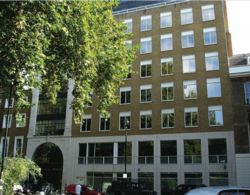ABB scores at Football Association

As part of upgrading work at the FA headquarters in London, An ABB variable-speed drive is providing better control of conditioned air and reducing energy consumption.
As part of a wider upgrade of services in the headquarters of the Football Association in London, a 22 kW variable-speed drive from ABB controls the speed of the fan in the air-handling unit to match changing pressure in the air ducts, reducing energy consumption. The improvement to the system in the Soho Square building was spurred by the need to include humidification in the building for the first time. Building engineer David Bane explains, without humidification the relative humidity of the air was dropping below healthy levels, especially in the winter. Now the upgraded system is saving energy and making everyone feel more comfortable. Energy savings from the drive have not yet been quantified. Any assessment is complicated by the fact that the humidification unit also saves energy because of its cooling effect on air, making the air conditioning less reliant on electrical cooling. The air in the building is filtered, and the pressure drop across the filters changes as they accumulate dust. The AHU previously supplied air as if it were working against the maximum back pressure from the filters. David Bane says, ‘ We used loads more energy and we’d also find unstable pressure conditions within the air ducts. Now the ABB drive is connected to the building-automation system and varies the fan speed to maintain a constant duct pressure. It saves energy and makes the whole system more stable.’
Related links:


